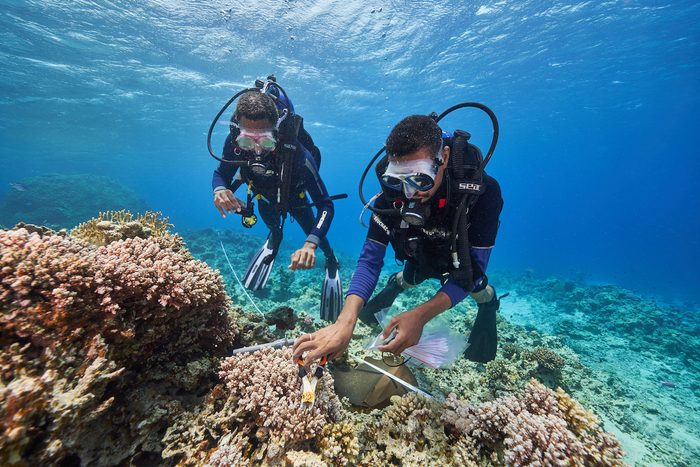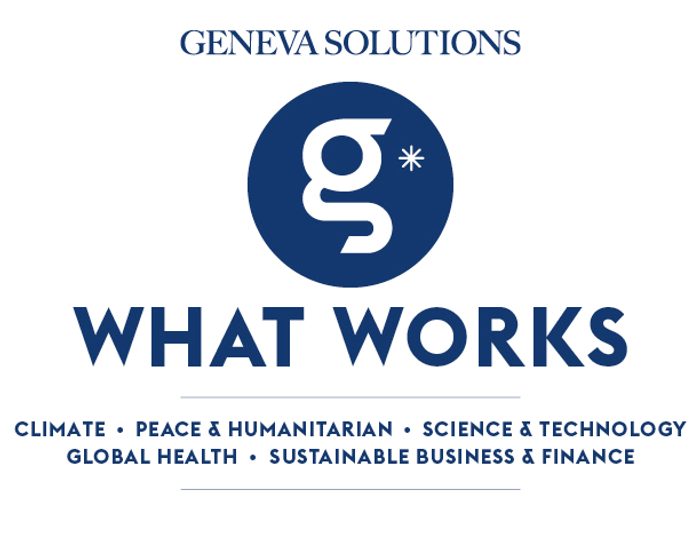Good morning, this is Michelle. Today, we look at what science diplomacy can do to advance research in a region riddled with conflict and geopolitical tensions. We checked back on a project we had reported on a year ago, the Transnational Red Sea Center.
The Swiss-led initiative aims to bring local scientists together to study – and ultimately protect – the sea’s unique heat-resistant corals. So far, diplomatic efforts have gotten Jordan, Israel, Sudan and Djibouti on board, while Egypt and Saudi Arabia are still on the fence. |
|
Science diplomacy to save the Red Sea corals
|
|

Divers take coral samplings on shallow water reefs of the gulf of Aqaba. (Credit: Transnational Red Sea Center/Guilhem Banc-Prandi)
|
|
The Red Sea is one of the busiest sea routes of the planet and a breeding ground for geopolitical tensions. Mistrust and suspicion among bordering countries are commonplace in this sea water inlet that separates Africa's eastern coast from the Arabian peninsula. A Swiss-led project involving local scientists has been working for the past year to dispel some of that animosity to protect the Red Sea’s unique heat-resistant corals.
Launched by the Ecole Polytechnique Federale de Lausanne (EPFL) in 2019, the Transnational Red Sea Center is an initiative allying science and diplomacy. So far, researchers from Switzerland, Jordan, Israel and, more recently, Sudan have joined forces to map out and study the coral reef along the gulf of Aqaba. A first trip to Djibouti is planned in the coming weeks, while there are ongoing talks with Saudi Arabia and Egypt to get them onboard.
Read the full story on Geneva Solutions (EN)
|
|
Here's what else is happening
|
|
GS news is a new media project covering the world of international cooperation and development. Don’t hesitate to forward our newsletter!
Have a good day!
|

|
|
Avenue du Bouchet 2
1209 Genève
Suisse
|
|
|
|








